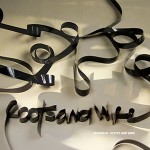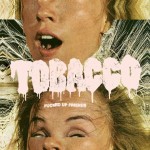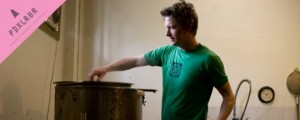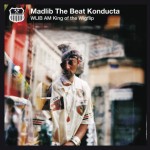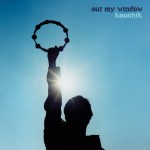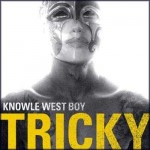Interview
Earplug
October 2008

Planes of bright green figures on an Atari-like landscape of oscillating lines, vectors, and grids — these are the sorts of images that accompany performances by San Francisco’s Tussle. It’s an appropriate set of visuals for a band that creates taut, bewitching rhythms. And, with a recent series of personnel shifts — original members Nathan Burazer and drummer Jonathan Holland are now joined by fellow drummer Warren Huegel and bassist Tomo Yasuda — Tussle have added another dimension, taking their music into free-ranging, cosmic arenas. It’s fitting, then, that the band wanted to release its new album, Cream Cuts, on August 8, 2008, in honor of a certain sacrosanct Roland product. Earplug’s Patrick Sisson phoned knob twiddler Nathan Burazer to talk about music’s collective call, looking over the shoulders of giants, and how making music is like the plastic arts.
Earplug: You have an art background and often perform in galleries. What is proper gallery etiquette, and how do you score a lot of free wine?
Nathan Burazer: For us, there is no etiquette. The wine just comes, you put up your glass and they fill it up, and you do your thing and be yourself. You need to put your pinky out a bit while drinking your wine and occasionally go to the bathroom to make sure your beret looks OK.
EP: The music on Cream Cuts sounds more flexible than on previous albums. In addition to the lineup switch, how has the songwriting process changed?
NB: It was interesting. We came out of the lineup change and were like, shit, we have to write new songs. And a lot of the songs came out of samples that we had, things I had kept around from touring that we took into the studio. Over the span of two years, we added some overdubs and had a lot of back and forth. It was actually a lot like painting. Erase, paint some, sit back, look at it a couple of months later, add something, and then take it out.
Read more…
